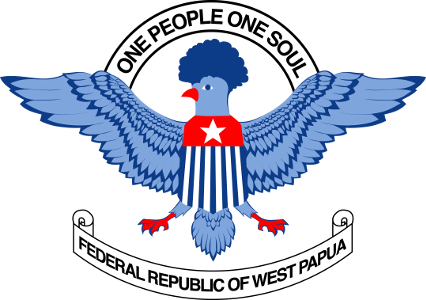Barak H Obama
President, United States of America
The Whitehouse
1600 Pennsylvania Avenue NW
Northwest Washington, DC 20500
United States
21 November 2012
Your Excellency,
I am writing from Abepura Prison, firstly to congratulate on your re-election for a second term, which
many of us in West Papua observed and cheered you on.
I am also writing Sir to request your assistance in negotiating peace and justice with Indonesia. I am
sure your diplomats are cognizant with Indonesian governance in my homeland, and realize that it is
little better now in 2012 than it was during Suharto’s New Order (1966—1998).
West Papua is one of the most militarized territories in the world. There is an Indonesian-security
identity for every 100 citizens, which is not even comparable with Iraq in 2009, where you would know
the ratio was one for every 140 citizens.
The people of West Papua, including our Christian Church leaders have, in the past decade, shifted
from passive to active opposition, and developed a singular commitment to winning our freedom. Last
October, five-thousand registered participants of a congress, surrounded by Indonesian military,
mandated the Federated Republic of West Papua to deliver our independence and self-determination.
Sir, we are an indigenous people, and move slowly and cautiously in the international arena, but I am
reaching out for your help because of our predicament now as just 48.73% of the population (down from
96.09% in 1962), with more than half-a-million (546,126) missing.
Your historians at the National Security Archives will recall it was the anti-communist plan devised
during the Cold War by the United States and Australia that over-rode our Netherlands-funded self determination in the 1960s and transferred our sovereignty to Indonesia.
The current president of Indonesia, Bambang Yudhoyono, is cognizant of Indonesia’s history in West
Papua. (His father-in-law, General Sarwo Edhie Wibowo, was Military Commander before, during and
after the Act of Free Choice in 1969). He has shown himself not unwilling to meet and talk, but is
obviously disabled by the republic’s unitary constitution and his military’s obsession with territorial
integrity. Against this however, he has learned from Indonesia’s relations with independent East Timor
that there is much more money and status in peace and justice than in war and occupation.
President Yudhoyono met secretly with our Foreign Minister in Jakarta last year, who has lived in
Australia since 1999 but has studied, worked, and been a political prisoner in Java. Minister Rumbiak
was able to demonstrate to the president the determination of the Federated Republic of West Papua
to achieve its ambition, and also how much it is costing Indonesia, in terms of money and reputation, to maintain a large military machine against a non-violent dialogue-seeking citizenry in West Papua.
President Yudhoyono is aware that the constitution of the Federated Republic of West Papua guarantees Indonesian civilians the right to live in West Papua, that we plan a good relationship with Indonesia, and intend to help lower levels of poverty in Indonesia that have been generated in part by fifty years of this useless war against us.
Sir, I would like you to believe that we are a proud and intelligent Melanesian people, blessed by God
with a country rich in natural resources, and with a unique geo-political capacity as the western border of Melanesia-Pacific. We understand out rights to justice, peace, and democracy, and will not fail to restore our freedom, but in the meantime my government has developed short, middle, and long-term (post-independent) policies that can be accessed through our (non-incarcerated) executive in Australia.
God bless America,
Yours faithfully,
Forkorus Yaboisembut

 Author:
Author: